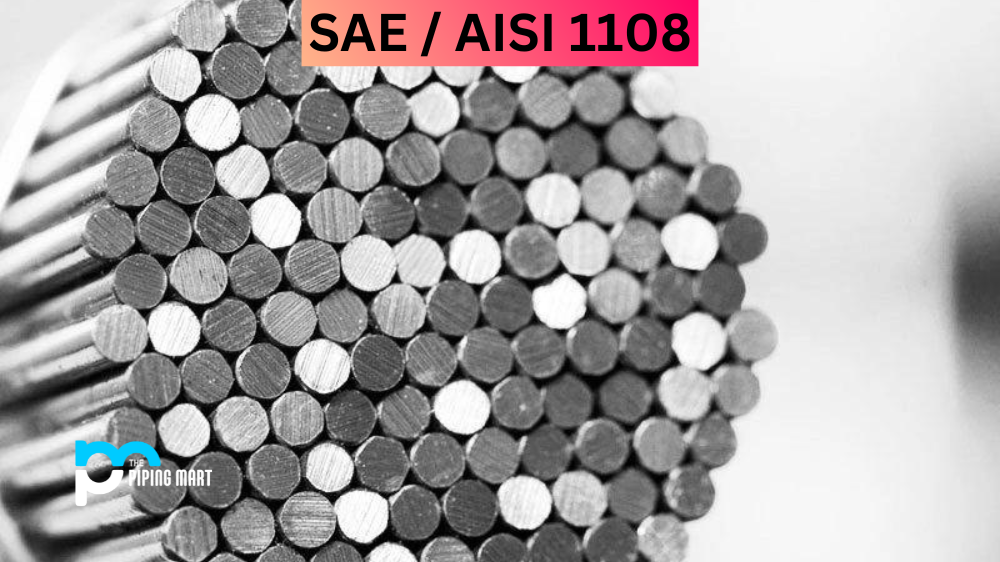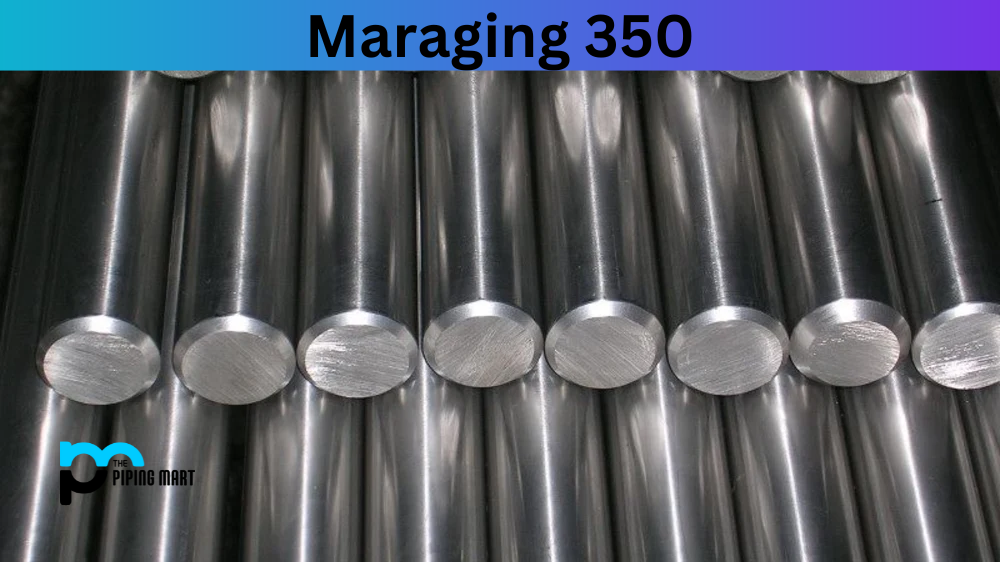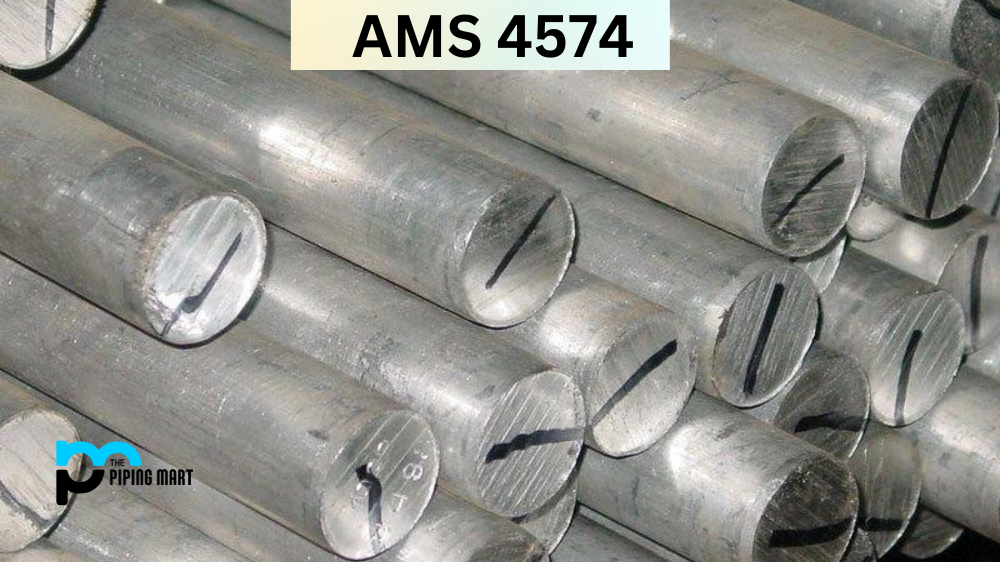SAE/AISI 1108, a prominent carbon steel, finds widespread use across industries due to its advantageous properties. This blog delves into its uses, corrosion and heat resistance, heat treatment, machinability, and weldability, providing comprehensive insights. With the highest carbon content among carbon steels, SAE/AISI 1108 presents challenges in forging but excels in machinability and weldability. Despite its difficulty in manufacturing, this steel remains a preferred choice in various industrial sectors like machinery, construction, and automotive parts, owing to its exceptional tensile strength and enduring qualities. In the dynamic landscape of material choices, SAE/AISI 1108 is a resilient and influential force in the steel industry.
What Forms of AISI 1108 is Available at Piping Mart?
- Nut
- Bar
- Bolt
- Pipe
- Screw
- Tubing
- Valves
- Washers
- Flanges
- Fasteners
- Electrodes
- Stud Bolts
- Sheet Plates
- Pipe Fittings
- Forged Fitting
- Instrumentation Fittings
AISI 1108 Composition
SAE/AISI 1108 Carbon Steel boasts high carbon content, making it challenging to forge but excellent for machinability and welding. It is widely used in machinery, construction, and automotive parts and exhibits exceptional tensile strength. Its physical properties underline its resilience, making it a significant player in diverse industrial applications.
| Carbon (C%) | Manganese (Mn%) | Silicon (Si%) | Phosphorus (P%) | Sulfur (S%) |
|---|---|---|---|---|
| Min: 0,07 Max: 0,13 | Min: 0,70 Max: 1,10 | ≤ 0,40 | 0,06 | Min: 0,15 Max: 0,25 |
AISI 1108 Physical Properties
G11080 is an excellent choice for a variety of applications, particularly those that require superior tensile strength and high wear resistance. It contains primarily carbon, but also has elements such as manganese and silicon which contribute to its physical properties. AISI 1108 ferrous metal displays tremendous ductility due to its low carbon content; making it easier to form and weld than other steel alloys. The short-term flexibility provided by this alloy reduces the risk of cracking when it is exposed to low-temperature environments. The surface hardness of this material can range from 40-55 in HRC (Rockwell) depending on the heat treatment process used; with most standard processes producing values between 43-52 HRC. This makes it especially suitable for components that will experience heavy loads while still requiring superior anti-abrasion qualities. Overall, G11080 provides an efficient balance between mechanical strength, ductility, and/or wear resistance depending on the heat-treating process used.
AISI 1108 Mechanical Properties
AISI 1108 Equivalent
| MATERIAL-NUMBER | DIN/EN | BSI/AFNOR | ASTM | AISI/SAE |
|---|---|---|---|---|
| 1.0721 | 10 S20 | G 11090, G 11080 | B1111, 1111, 1109, 1108 |
AISI 1108 Uses
SAE/AISI 1108 sees widespread use in the automotive sector, commonly employed in car and truck body panels, bolts, and other fasteners. In the construction industry, it finds application in nails, screws, and wires. Furthermore, its corrosion-resistant properties make SAE/AISI 1108 a favored choice in the food processing industry.
AISI 1108 Uses in Industries
- Construction Industry
- Automotive Industry
- Oil and Gas Industry
- Aerospace Industry
- Manufacturing Industry
AISI 1108 Corrosion Resistance
A paramount characteristic of SAE/AISI 1108 is its outstanding corrosion resistance. Demonstrating high resilience against corrosion from chemicals, water, and oxygen, this material also excels in resisting pitting and crevice corrosion. SAE/AISI 1108’s robust corrosion-resistant properties make it a reliable choice for various applications.
AISI 1108 Heat Resistance
Another vital attribute of SAE/AISI 1108 is its remarkable heat resistance. It can withstand temperatures up to 400 degrees Fahrenheit and maintain its strength and durability under such conditions. Furthermore, SAE/AISI 1108 exhibits excellent Weldability, allowing it to be seamlessly joined with other metals using standard welding methods.
AISI 1108 Machinability
SAE/AISI 1108 stands out for its high machinability, allowing easy cutting, drilling, milling, and turning using standard machining methods and equipment. It exhibits excellent wear resistance, retaining its integrity even under high temperatures without undergoing deformation. SAE/AISI 1108’s machinability and heat resistance combination enhances its suitability for various applications.
AISI 1108 Weldability
As previously highlighted, SAE/AISI 1108 boasts excellent weldability, allowing effortless joining with other metals using standard welding methods and equipment. Furthermore, it showcases remarkable corrosion resistance and maintains structural integrity under high temperatures without undergoing deformation. The versatile qualities of SAE/AISI 1108 make it well-suited for diverse applications requiring robust welds and resistance to environmental challenges.
Conclusion:
SAE/AISI 1108 is a versatile material, delivering numerous benefits across diverse applications. Widely employed in the automotive and construction industries, its high strength and durability make it a preferred choice. Notably resistant to corrosion and capable of withstanding high temperatures without deformation, SAE/AISI 1108 is an ideal option for those seeking superior performance in various applications.

A passionate metal industry expert and blogger. With over 5 years of experience in the field, Palak brings a wealth of knowledge and insight to her writing. Whether discussing the latest trends in the metal industry or sharing tips, she is dedicated to helping others succeed in the metal industry.




